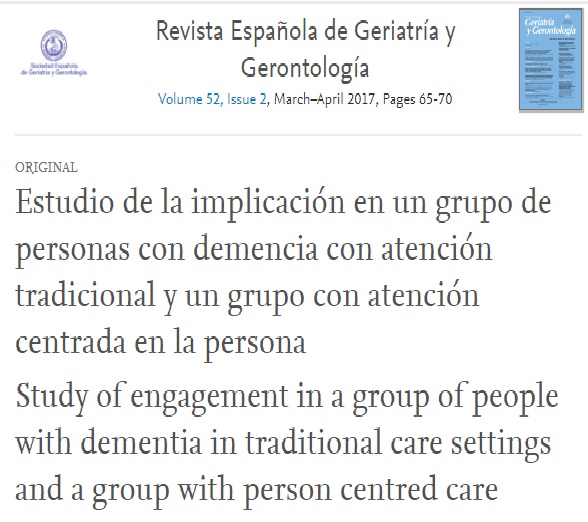Study of involvement in a group of people with dementia with traditional care and a group with person-centered care.

People with dementia in residential settings have a high degree of apathy and disconnection with the environment. The absence of stimulation and the low frequency of personalized activities, characteristic of residential centers, could be contextual elements that favor these behaviors. The person-centered care model (MACP) promotes the participation of people in daily activities according to their resources, interests and needs. The aim of this study is to compare the frequency of involvement and disinvolvement behaviors in daily activities in 2 groups of users residing in psychogeriatric units, one of them assisted according to the traditional model and the other according to the MACP.
Twenty-eight subjects with cognitive impairment and residents in psychogeriatric units participated in the study: 14 users in a traditional unit (control group) and 14 in a unit in which interventions related to MACP were incorporated (experimental group). The groups were equivalent in cognitive impairment, functional capacities and a˜nos of admission. The Involvement/Engagement Log was used to observe in both groups the frequency of 12 categories of involvement behavior in 2 distinct periods: before MACP-associated interventions and 18 months after the interventions began.
Both groups saw an increase in the frequency of their engagement behaviors in the post period; however, the experimental group decreased disengagement behaviors, while the control group increased them.
According to the data, interventions associated with MACP could minimize disengagement behaviors that occur in the residential setting by linking people to the setting and facilitating participation and involvement in activities of daily living.
Professionals
Other Professionals
- Nerea Suárez Pérez de Eulate
- Gabriela Mondragón Olán



